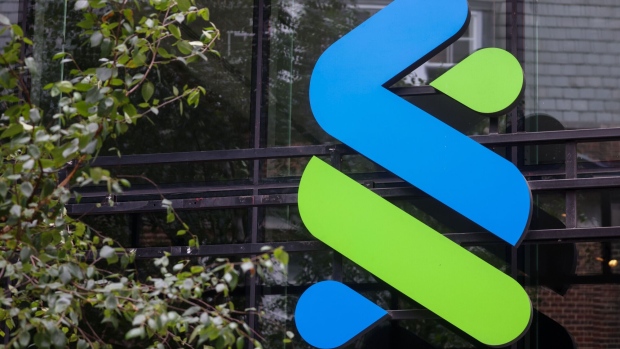
Who are the earliest adopters of new technologies? Slicing-edge things tends to be high priced, which means the remedy is generally the particularly loaded. Early adopters also are likely to be incentivised by lower-throat competition to glance further than the standing quo. As this kind of, there may well be no team extra possible to decide on up new equipment than the uber-rich and hyper-competitive hedge-fund industry.
Your browser does not support the
This rule appears to keep for synthetic intelligence (ai) and device understanding, which were being initially employed by hedge funds many years back, well right before the new hype. 1st arrived the “quants”, or quantitative investors, who use knowledge and algorithms to decide on stocks and place small-time period bets on which property will increase and fall. Two Sigma, a quant fund in New York, has been experimenting with these methods due to the fact its founding in 2001. Male Group, a British outfit with a huge quant arm, launched its very first device-mastering fund in 2014. aqr Funds Management, from Greenwich, Connecticut, began utilizing ai at about the identical time. Then came the relaxation of the market. The hedge funds’ practical experience demonstrates ai’s capacity to revolutionise business—but also reveals that it requires time to do so, and that development can be interrupted.
Ai and machine-mastering funds appeared like the last action in the march of the robots. Low-cost index resources, with shares picked by algorithms, experienced presently swelled in sizing, with assets less than administration eclipsing all those of regular active resources in 2019. Trade-traded money made available affordable exposure to fundamental tactics, these as selecting progress stocks, with minimal will need for human involvement. The flagship fund of Renaissance Technologies, the to start with ever quant outfit, proven in 1982, acquired regular annual returns of 66% for decades. In the 2000s speedy cables gave increase to superior-frequency marketmakers, such as Citadel Securities and Virtu, which were being ready to trade shares by the nanosecond. More recent quant outfits, like aqr and Two Sigma, defeat humans’ returns and gobbled up property.
By the finish of 2019, automated algorithms took both sides of trades far more frequently than not substantial-frequency traders faced off from quant buyers, who experienced automatic their expense procedures algorithms managed a majority of investors’ property in passive index money and all of the major, most productive hedge resources utilized quantitative strategies, at least to some diploma. The classic types ended up throwing in the towel. Philippe Jabre, a star investor, blamed computerised types that had “imperceptibly replaced” common actors when he shut his fund in 2018. As a consequence of all this automation, the stockmarket was extra productive than at any time before. Execution was lightning speedy and expense upcoming to nothing. Individuals could devote discounts for a fraction of a penny on the dollar.
Equipment understanding held the promise of continue to bigger fruits. The way just one investor explained it was that quantitative investing begun with a hypothesis: that of momentum, or the notion that shares which have risen quicker than the relaxation of the index would continue on to do so. This speculation makes it possible for specific stocks to be examined in opposition to historic information to assess if their worth will go on to increase. By distinction, with device mastering, buyers could “start with the data and look for a hypothesis”. In other words, the algorithms could make a decision both of those what to decide and why to select it.
Still automation’s wonderful march forward has not continued unabated—humans have fought again. In direction of the finish of 2019 all the important retail brokers, which includes Charles Schwab, e*trade and td Ameritrade, slashed commissions to zero in the experience of levels of competition from a new entrant, Robinhood. A couple of months afterwards, spurred by pandemic boredom and stimulus cheques, retail buying and selling began to spike. It reached a peak in the frenzied early months of 2021 when day traders, co-ordinating on social media, piled into unloved stocks, leading to their costs to spiral better. At the exact time, lots of quantitative procedures seemed to stall. Most quants underperformed the marketplaces, as effectively as human hedge cash, in 2020 and early 2021. aqr shut a handful of resources just after persistent outflows.
When markets reversed in 2022, several of these traits flipped. Retail’s share of buying and selling fell back again as losses piled up. The quants arrived again with a vengeance. aqr’s longest-working fund returned a whopping 44%, even as markets lose 20%.
This zigzag, and robots’ growing part, holds classes for other industries. The 1st is that people can respond in unforeseen strategies to new technologies. The slipping price of trade execution appeared to empower investing machines—until charges went to zero, at which place it fuelled a retail renaissance. Even if retail’s share of investing is not at its peak, it stays elevated in comparison with before 2019. Retail trades now make up a 3rd of trading volumes in stocks (excluding marketmakers). Their dominance of stock selections, a variety of by-product guess on shares, is even greater.
The 2nd is that not all technologies make marketplaces far more effective. A single of the explanations for aqr’s time period of underperformance, argues Cliff Asness, the firm’s co-founder, is how excessive valuations became and how lengthy a “bubble in everything” persisted. In element this may be the consequence of overexuberance among retail traders. “Getting info and getting it promptly does not indicate processing it properly,” reckons Mr Asness. “I are likely to believe issues like social media make the market place less, not much more, effective…Persons really do not listen to counter-viewpoints, they hear their individual, and in politics that can direct to some harmful craziness and in marketplaces that can guide to some seriously strange price motion.”
The 3rd is that robots take time to come across their position. Equipment-discovering cash have been all-around for a whilst and look to outperform human opponents, at minimum a minimal. But they have not amassed huge assets, in portion due to the fact they are a tricky market. Just after all, several people realize the threats concerned. Individuals who have devoted their occupations to equipment discovering are acutely informed of this. In purchase to establish confidence, “we have invested a great deal more in outlining to customers why we imagine the machine-mastering techniques are carrying out what they are accomplishing,” stories Greg Bond of Gentleman Numeric, Guy Group’s quantitative arm.
There was a time when all people imagined the quants had figured it out. That is not the perception today. When it comes to the stockmarket, at the very least, automation has not been the winner-can take-all occasion that lots of fear in other places. It is much more like a tug-of-war in between people and devices. And nevertheless the devices are successful, individuals have not let go just nevertheless. ■
For a lot more pro examination of the largest tales in economics, finance and marketplaces, indication up to Income Talks, our weekly subscriber-only e-newsletter.






